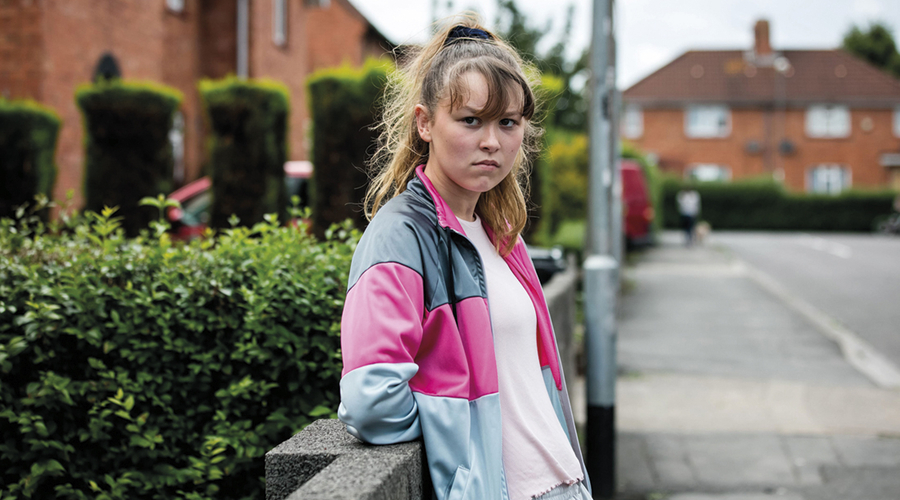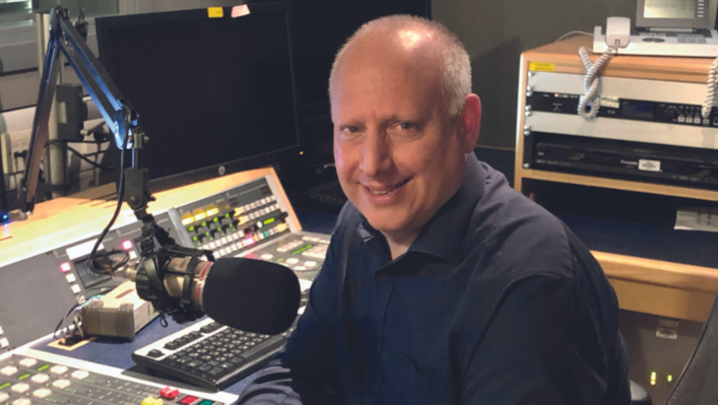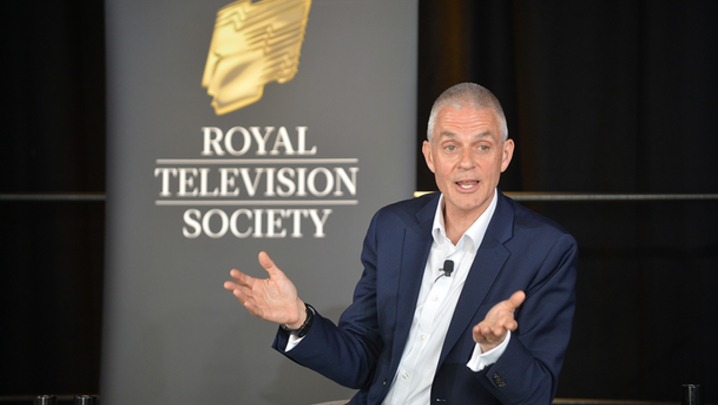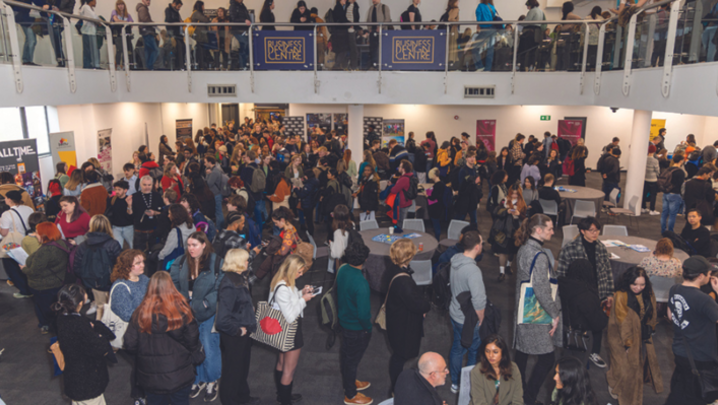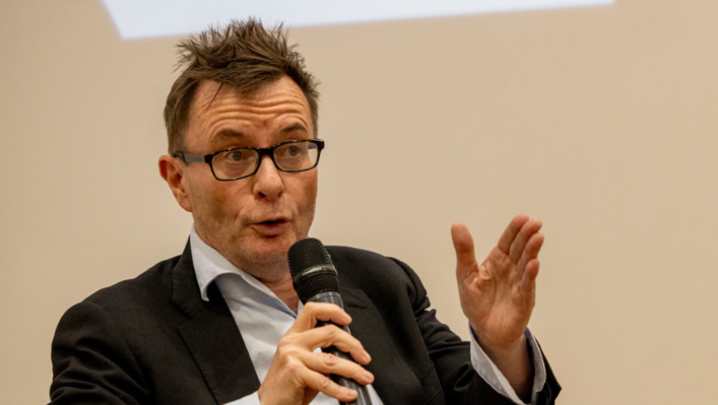The BBC’s Charlotte Moore explains why trusted British voices are more important than ever. Steve Clarke reports.
Further evidence that the BBC is striking a more strident tone as it calls for greater resources in the streaming era was provided by the corporation’s director of content, Charlotte Moore, in her recent Steve Hewlett Memorial Lecture.
In a wide-ranging and, at times, feisty speech aimed primarily at policymakers and politicians, Moore argued that trusted, authentic British storytellers in the tradition of Hewlett risked being undermined unless the BBC was properly funded.
Yes, the golden age of content we were experiencing was partly due to Netflix and Amazon raising the bar, said Moore. But, despite having pockets as deep as the Mariana Trench, these companies’ investment in UK production was not bridging the content gap – money spent on UK programmes by Britain’s public service broadcasters was at its lowest for 20 years
In her lecture, the senior executive focused on what the BBC, uniquely, could deliver to audiences, both at home and overseas: authentic, trusted British storytelling, told by veterans, such as David Attenborough, or newer talent such as Phoebe Waller-Bridge, the adaptor of Killing Eve, and Nicole Taylor, the writer of Three Girls.
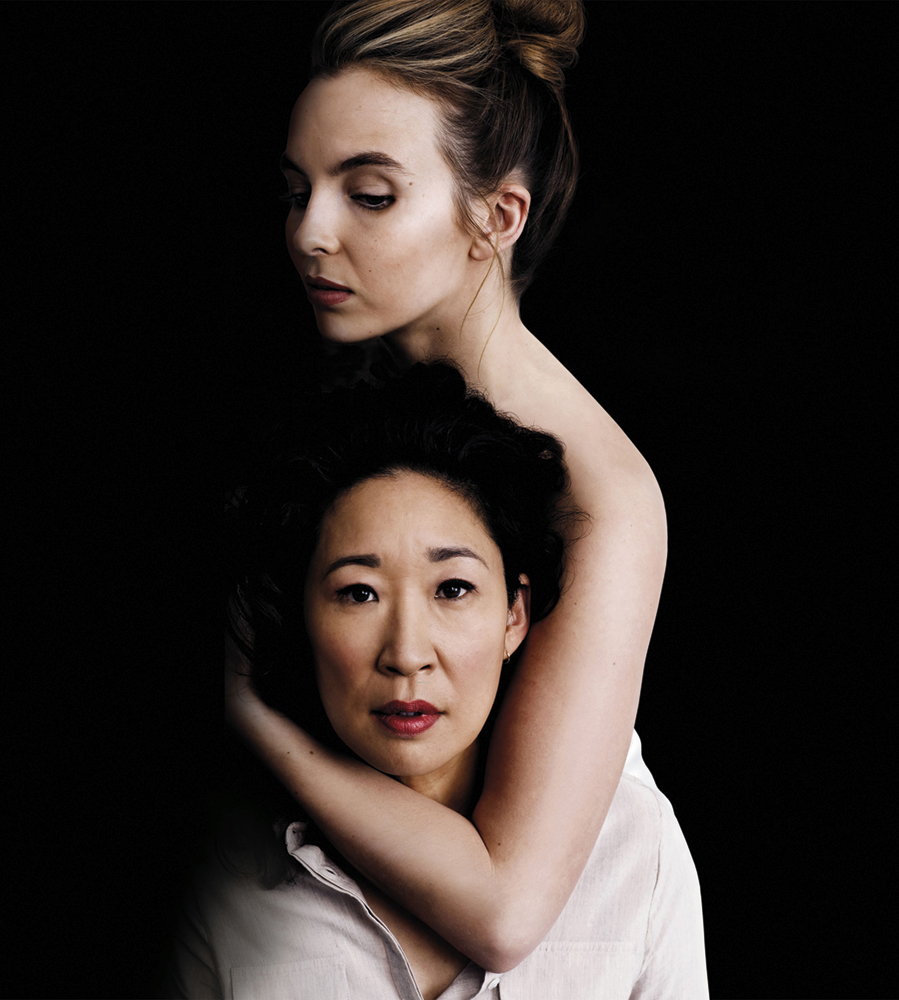
Moore said that Hewlett, presenter, producer and journalist, knew that, the harder the story, the more important it was to tell. “He understood that stories are there to entertain us, but they are also how we question the way we are, how we laugh at ourselves, and how we come to terms with difficult truths.
“‘I’m a storyteller…,’ Steve said it again in one of his later interviews. ‘I now realise that is really what I am about.’”
In today’s fast-changing society, “British stories told by British voices matter more than ever before,” proposed Moore. She recalled how viewers were emotionally engaged by Blue Planet II. The show’s depiction of the endemic plastic pollution of the world’s oceans had caused a sea change in public perception of the problem.
In particular, the story of a female whale’s likely poisoning of her own calf, via the build-up of plastics and chemicals in her milk, was a pivotal moment in affecting viewers’ attitudes to single-use plastic.
After watching this sequence on Blue Planet II, they wanted to do something practical to reverse the situation. Moore said polling suggested that nearly two-thirds of people intended to make changes to their daily lives.
Drawing attention to the scale of maritime pollution was “public service broadcasting at its best”, said the BBC’s director of content.
She drew a parallel between Blue Planet II’s unflinching focus on the effects of plastic in the oceans and one of Hewlett’s most successful, and controversial, pieces of broadcast journalism.
His determination to expose the state of Diana, Princess of Wales’s marriage in an incendiary, hour-long interview on Panorama (he was the programme’s editor) in 1995 was another example of bold, emotional storytelling.
The show was watched by 23 million people and generated international headlines. So, too, was his brave decision to tell his final story, the story of his cancer, live on air to Eddie Mair on Radio 4’s PM.
Trusted storytellers were more vital than ever in our cynical, febrile age. She also referenced the RTS- and Bafta-award-winning Three Girls, the story of the victims of the Rochdale child-abuse scandal, shown by BBC One on three consecutive nights.
“On the face of it, an extremely uncomfortable story to tell. Horrific and harrowing, it’s fraught with really challenging issues – from why the girls weren’t believed for so long, to why senior figures in the police, social services and the council were too afraid of being accused of racism to act. Before Nicole had written a single word, we promised to tell their story and we couldn’t let them down,” said Moore.
Turning to the present media landscape, she outlined how “the giants of the West Coast have driven up quality”, forcing “everyone to raise the bar”.
She claimed that, in doing so, “they’ve made the BBC’s unique public service mission steadily more important to this country”.
The BBC’s public purpose was critical “in the age of filter bubbles and fake news”, where, “increasingly, there’s the sense that we’re all living in our separate worlds”, suggested the content chief.
“We’re focused on what makes us feel different or divided, forgetting what we have in common. We’re losing the ability to see things from another’s point of view or to put ourselves in their shoes.”
And, as shows such as Bodyguard and the latest incarnation of Doctor Who have proved, even in the VoD age there remained a place for appointment-to-view TV.
In addition to bringing the country together, part of the BBC’s purpose involved celebrating difference. This aspect of the corporation’s mission was evident in shows such as The Boy with the Topknot, Murdered for Being Different, Chris Packham: Asperger’s and Me and Rio Ferdinand: Being Mum and Dad.
While praising some of the BBC’s other achievements in drama, comedy, entertainment and factual, such as Happy Valley, The Detectorists, Strictly Come Dancing and David Olusoga’s Black and British: A Forgotten History, for reflecting British passions, Moore noted that British stories were in decline across UK networks.
“Overall investment in original British content is down by £1bn since 2004,” she said. “It is no coincidence that all this has happened during a period when the BBC has come under real financial pressure.
“Since 2010, when the licence fee was frozen, the amount we have available to spend on content has fallen by nearly a fifth. That’s meant half a billion less a year to spend on new British ideas and programmes.”
She continued: “Netflix’s current budget for programmes is $8bn. Amazon’s is $5bn. But their investment in new UK programmes is only around £150m a year. Less than 10% of their catalogues is made up of content produced in the UK.
“The Crown may be a wonderful example of a big global player telling a British story, but it’s also a rare one. In this new, US-dominated media environment, we run the risk of seeing fewer and fewer distinctively British stories.”

Drawing attention to the BBC’s role as an arm of British cultural soft power, she emphasised the importance of content such as The Night Manager, War & Peace and Blue Planet II, and of globally successful formats like Strictly Come Dancing. With Brexit looming, this part of the BBC’s remit was hugely important.
“And it’s about so much more than just the BBC…, it’s about the whole of the UK production sector and the strength of our broadcasting industry overall,” Moore added.
“British TV is the very best in the world. As a country, we punch so far above our weight.”
The implication was clear – further resources were needed to beef up British content aimed at UK audiences, or the US would eventually dominate British media companies to an even greater extent than was the case today.
“Ten years ago, around 83% of independent production companies in the UK were either UK- or European-owned. Today, it’s less than 40%, with the rest owned by US multinationals.
“Increasingly, it is decisions taken on the [American] West Coast that are defining our media landscape. We cannot allow them to reduce our creative firepower.”
Creativity was taking a back seat to technology: “The television landscape is increasingly defined by what will deliver the biggest profits for companies, not the best programmes for audiences.
“I worry that the insatiable greed for data-gathering is actually serving the wrong master. That entire businesses are focused on what they can take from audiences, instead of what they can give back.
“Sure, audience data and algorithms are incredibly useful. We can learn so much from what’s working for audiences and what’s not. We can understand how to tailor our services uniquely to them.
“But I don’t believe any amount of data can tell you what to commission next. Data simply won’t deliver Car Share, A Very English Scandal or Murder in Successville.”
She made five promises to licence-fee payers: a commitment to new talent; to back great talent; to provide the right content for younger audiences; to respect diverse audiences (“Diversity needs to be hardwired into everything we do”); and to “work harder than ever to take Britain’s creative strength and cultural influence to the world”.
Her boss, BBC Director-General Tony Hall, recently told the RTS that, following years of austerity, “the cracks are beginning to show”, as witnessed by the example of BBC Three being downgraded to an online-only service.
“Because of the huge changes that have taken place in the market around us – the vast increases in competition and costs – what we currently do is simply not sustainable with the resources we have.”
Despite these threats to British storytelling, there was still “a fantastic opportunity” and the BBC was “brilliantly placed to respond”.
Evoking Steve Hewlett’s commitment to the BBC, she said that, even though he “asked difficult questions of us, he was also our greatest champion and supporter”. Hewlett “even spoke about his concerns for the BBC and its vulnerability in his very last interview with Eddie Mair. He knew how much what we do matters.
“He held us, quite rightly, to the highest standard. He was a passionate believer in British creativity and risk-taking and in public service television.
“As we look to the future, it’s this spirit of fearlessness we need to embrace in everything we do.”
The Steve Hewlett Memorial Lecture is a joint initiative by the RTS and the Media Society. BBC director of content Charlotte Moore gave her lecture at the University of Westminster, central London, on 11 October.
Female voices centre stage
Charlotte Moore: ‘Female stories must clearly be a massive part of this narrative, too. I don’t need to tell anyone here that, as a society, we’re just at the start of a very long journey to address a huge historical failing of female voices.
‘But I do believe that we’re living through an incredibly exciting time. I can’t put it any better than Phoebe Waller-Bridge: when it comes to the need for more female-centric stories, finally, “people have woken the fuck up”.
‘Forty-five per cent of the dramas we’ve commissioned at the BBC in the past two years are from female writers. It’s not 50:50, yet, but it’s more than double where we were in the past.
‘There’s a whole generation of female stories, perspectives and experiences that’s coming to the surface. It’s our responsibility to make that generation heard – and help them to inspire a new generation in turn.
‘They bring with them a promise of a society that is fairer, better, and more equal than ever before. I defy anyone who saw that viral video of the little girl waiting for the new Doctor Who to be unveiled, and who witnessed the expression on her face when she shouted, “The new doctor is a girl”, not to think that we’ve done something good and inspirational.’
BBC turns on young people
Charlotte Moore: ‘We still reach more than eight out of 10 under-16s each week, and more than eight out of 10 16- to 34-year-olds. We’re still the media provider that young adults spend the most time with.
‘BBC Three is challenging the status quo, through an authentic and unfiltered lens.…
‘We know that young people love our programmes, so it’s not right that they should be left to discover them on Netflix or elsewhere, and lose out on everything else the BBC has to offer.
‘What we’ve learnt time and time again is: make it brilliant, and they will come.
‘Bodyguard hasn’t just broken all records with more than 36 million box-set requests, it also attracted the highest young audience for any drama this year on any channel.’

